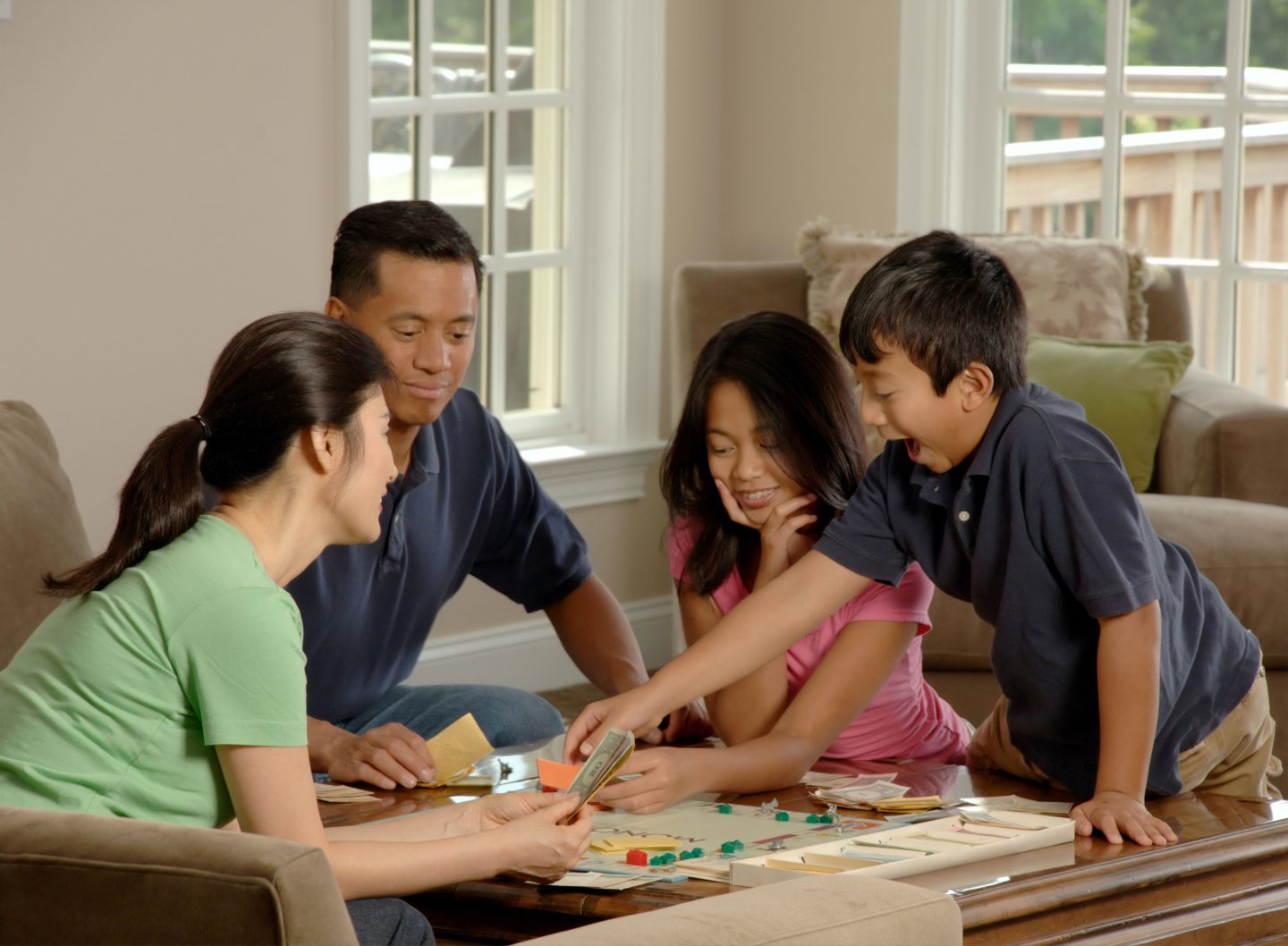
One way to handle stress in these unpredictable times is to “be comfortable with the unknown," said Adriana Lim Escaño from Mums for Life. "This is like change management." Photo by National Cancer Institute on Unsplash.
In survey results released on April 30 by Focus on the Family Singapore from a survey involving over 1,000 mothers, six in 10 reported their stress levels measuring seven or higher.
This was up from last year’s Wellbeing of Mum 2019 Survey when 52% of mothers reported similar stress levels.
Christy Lim, 44, a director of a Christian non-governmental organisation, used to send her two children aged three and four to day care. Now, they are home with her.
“While I relish the pockets of time I do get to spend with them now that they’re home with me, the stressors are in terms of juggling work with the unspoken expectations that I should be there to attend to the kids when they are restless and throwing tantrums,” Lim said.
Lim echoes the experience of an increasing number of mothers during Circuit Breaker.
To find out how different households are managing Circuit Breaker stress, Salt&Light spoke to mothers with children of various ages, ranging from toddlers to adults, about the things they do to stay centred and emotionally healthy during Circuit Breaker. Here are their tips:
#1 Develop a culture of esteem
In Focus on the Family Singapore’s Wellbeing of Mums Survey 2019, four out of five mums reported experiencing mum guilt.
Mums for Life founding member Adriana Lim Escaño, 40, said mums need to develop a “culture of esteem” – they need to see that they are valuable and of worth, and to care for themselves without feeling guilty.
“It’s a love treat to myself where I say: ‘Here’s a little treat, sit back, enjoy, be happy, recharge.’”
A CEO of her own retail company, with three children under the age of 10, Lim Escaño said: “I listen to my body. If my head feels like it’s not concentrating on Zoom, I know that my body needs a break.
“At the end of the day, I also usually keep a treat for myself, usually a dessert – a cake, a tart, tiramisu or ice-cream.
“It’s a love treat to myself where I say: ‘Here’s a little treat, sit back, enjoy, be happy, recharge.’ Then, I get back to things again.”
Tan, whose children go to bed by nine, uses the time after that to re-charge: “It’s me-time at night. I pray, watch a video or read a book.”
Teacher Christabel Tan has her husband take over the cooking and chores on weekends so that she has time to herself.
Focus on the Family Singapore’s Joanna Koh-Hoe, 45, who has a 14-year-old son, added: “When my child was an infant, I used to retreat to the bathroom for an hour because that was the only place that I could have my ‘me-time’ undisturbed and without question.”
These days, she plays the piano for fun or allows herself some time to play handphone games or window-shop online.
“I was also recently reminded of the importance of Sabbath rest,” she said.
#2 Try an adjacent activity
Josephine James, 43, who has two daughters aged 11 and 17, is a work-from-home mum.
A few years ago, drained from a book project she had completed, she found herself “completely crushed”.
“I told myself that since I knew nothing about art anyway, I could only fall upwards from that point.”
“I ran into a major emotional wall and found myself stuck with horrible writer’s block,” she shared.
She decided to try something totally different – art and painting.
“I told myself that since I knew nothing about it anyway, I could only fall upwards from that point,” she said.
“Even though the learning curve was really steep, it gave me new problems to solve, something so vastly different from what I had been doing that I found a separate avenue of creativity to explore.”
She has since learnt to try adjacent activities to manage stress.
“You will either get the angst out of your system by having a good laugh or succeed in small steps and find a new passion,” she said.
Carol Loi, 49, founding member of SGFamilies and a digital literary educator, who has teen daughters aged 18 and 15, agreed: “I do something mindless like laundry or cook with my girls.
“It’s something different from my work where I need to think, talk and listen. I actually take joy in doing routine housework.”
#3 Let go
These are unusual times. So, adjusting expectations to fit the new normal is necessary.
“When I think I’m going to get upset that things don’t go my way, I ask, ‘What is the most important thing here?’”
Said Lim Escaño: “Be comfortable with the unknown. This is like change management. People are barely adjusting and there’s a range of emotions they have to recognise and deal with.
“I allow room for the unexpected or delays because I can’t control the other people in the house.
“Then, when I think I’m going to get upset that things don’t go my way, I ask, ‘What is the most important thing here?’ It’s the person. When I carry that value of the person, I see past most things.”
Loi has similarly adjusted her expectations.
“We have lowered our standards for cleanliness. As long as the home is functional, it’s good,” she laughed.
#4 Find a new rhythm of rest
This seems impossible advice given all that needs to be done, but it is vital.
Said Koh-Hoe: “As a mum I, too, experience these emotions and have discovered that one of the most liberating things we can do is to take a moment to find a new rhythm and rest, to choose grace over guilt, progress over perfection, and connection with our family over control of our present circumstances.”
“One of the most liberating things is to choose grace over guilt, progress over perfection, and connection over control.”
Aileen Kong, 66, who manages a four-generation household that includes her 95-year-old mother, her grown children and daughter-in-law, as well as two grandchildren aged five and three during the Circuit Breaker, has a full plate providing daily meals for 11 people, caring for her grandkids while their parents work, and preparing materials for the two Bible study groups that she leads.
Yet she still finds pockets of time to rest.
“My most precious time is putting my grandchildren to sleep in the afternoon on my bed.
“Reading to them Bible stories, telling them about Jesus before saying a short prayer and humming and patting them to sleep, absolutely relaxes me,” she said.
#5 Plan and prioritise
Serene Lim, 50, who home-schools her seven children, manages her stress by keeping on top of meal plans.
“With everyone home all the time and eating all the meals, my workload has become heavier even though my children help with cooking.
“I focus on the most important things first. I may not finish everything and it’s okay.”
“No longer can I just go and buy what I need since grocery shopping is a such a major task now with limits on what we can buy and all.
“To reduce stress on this front, I plan ahead. To reduce the stress of answering, ‘What’s for breakfast, lunch or dinner?’ all day long, I write out our meals on a whiteboard,” she said.
Loi goes one step further: “I build a regular schedule of the day so that I know when I need to do my work, when the family comes together to connect, and when to maintain my me-time.”
Planning also helps mums to do the important first.
“I focus on the most important things first. I may not finish everything and it’s okay. I learn to manage my expectations and look after my well-being so I don’t burn out,” said Lim Escaño.
#6 Take time to play
When the going gets tough, the tough need to play.
Christy Lim said: “I handle the stresses by doing kids Zumba with my kids using a video.”
Lim Escano does the same: “I join my kids in a game they’re playing or some funny game they have created, just getting into their world. Hugging my kids always makes me feel better.”
“I find that I need to have some mindlessness (not mindfulness!) because my brain is at-work all the time,” added Koh-Hoe. “So I allow myself about 10-15 minutes each day to play a phone game or window-shop online, and since being reminded recently about the importance of rest and sabbath, take time to watch TV – silly Korean variety shows are the best!
“As a Christian, I also journal (take notes on my phone or laptop) and listen to Christian (praise or worship) music as that ministers to the spirit and not just the body or soul.”
#7 Watch your thoughts
Angie Uzcilas, 43, has two sons aged three and one, and works part-time.
I focus on what is positive. I know God is with us.
“There is financial uncertainty, with work days changing from week to week. I have to balance the need to keep the kids in day care, with the worry of exposure to the virus,” she admitted.
When things look dark, she takes control of her thoughts.
“I focus on what is positive in my life. I know God is with us.”
Lim uses the kids’ nap time to “centre myself in the Lord, recalling his perfect loving trustworthiness”.
“Reading the book, Sneezing Jesus, about the humanity of Christ and living out the kingdom here and now has been super refreshing too!”
Kong also turns her thoughts to her God: “Preparing Bible study gives me a sense of God’s presence which is calming.
“Holding bible study with my two groups and also with my maids is relaxing as we share our concerns and prayers.”
Focus on the Family's Take a Moment Mother's Day campaign
From May 1 to 11, Focus on the Family Singapore is running their Mother’s Day campaign which will feature an experiential online tool to help mums process their thoughts and emotions, and find a new rhythm of rest.
Here’s how to reassure your children that God is still faithful
Rising tension in the home during Circuit Breaker? Here’s how to diffuse friction
We are an independent, non-profit organisation that relies on the generosity of our readers, such as yourself, to continue serving the kingdom. Every dollar donated goes directly back into our editorial coverage.
Would you consider partnering with us in our kingdom work by supporting us financially, either as a one-off donation, or a recurring pledge?
Support Salt&Light



